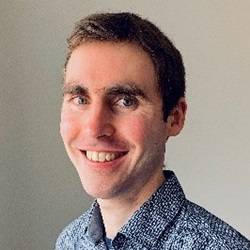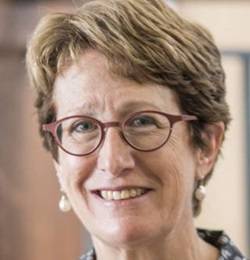The Biochemistry, Structural Biology and Biotechnology streams are united by analysis of biological systems at the atomic, molecular and cellular levels.
The streams have a focus on protein and nucleic acid structure and function in the context of molecular machines, cellular physiology and disease, using state of the art biotechnology.
Why study these topics at UCL?
The Research Department of Structural and Molecular Biology at UCL is part of the Institute of Structural and Molecular Biology (ISMB) jointly with Birkbeck College. The ISMB is internationally recognised as a leader in multi-disciplinary structural biology, biochemistry and biotechnology.
Our research portfolio includes cutting-edge molecular research in the diverse fields of gene expression, microbiology, metabolism, protein folding, membrane cell biology, signalling and computational biology. Approaches include protein biochemistry, mass spectrometry, cryo-electron microscopy, nuclear magnetic resonance, crystallography, single molecule biophysics, live cell microscopy, bioinformatics and artificial intelligence.
Career prospects
An MRes in Biochemistry, Structural Biology or Biotechnology will provide the student with quantitative and interdisciplinary skills and the student will be well placed to progress to PhD research or research in industry.
Participating laboratories (examples)
Biochemistry
Dr Kristine Arnvig
Dr Tom Blacker
Dr Kate Bowers
Prof Frances Brodsky
Dr Lisa Cabrita
Prof John Christodoulou
Prof Snezana Djordjevic
Dr Jerome Gouge
Prof Ivan Gout
Prof Flemming Hansen
Dr Brian Ho
Prof Matilda Katan
Dr Graeme King
Dr Alan Lowe
Dr Amandine Maréchal
Dr Harry McClelland
Dr Andrew Osborne
Prof Saul Purton
Prof Dan Raleigh
Prof Andres Ramos
Prof Joanne Santini
Prof Elizabeth Shephard
Prof Konstantinos Thalassinos
Prof Andrea Townsend-Nicholson
Prof Gabriel Waksman
Prof Finn Werner
Dr Hasan Yardimci
Dr Giulia Zanetti
Structural Biology
Prof Frances Brodsky
Dr Lisa Cabrita
Prof John Christodoulou
Prof Snezana Djordjevic
Prof Franca Fraternali
Dr Jerome Gouge
Prof Flemming Hansen
Dr Graeme King
Dr Amandine Maréchal
Prof Christine Orengo
Prof Stephen Perkins
Prof Dan Raleigh
Prof Andres Ramos
Prof Konstantinos Thalassinos
Prof Gabriel Waksman
Prof Finn Werner
Dr Hasan Yardimci
Dr Giulia Zanetti
Biotechnology
Prof Snezana Djordjevic
Prof Franca Fraternali
Prof Ivan Gout
Prof Flemming Hansen
Dr Brian Ho
Dr Graeme King
Dr Alan Lowe
Dr Harry McClelland
Prof Christine Orengo
Prof Stephen Perkins
Prof Saul Purton
Prof Joanne Santini
Prof Konstantinos Thalassinos
Prof Andrea Townsend-Nicholson
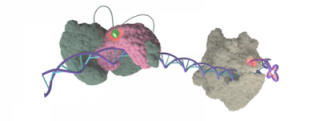
Decorative image depicting the theme of transcription and RNA biology
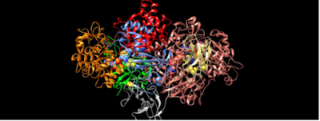
Decorative image depicting the theme of structural biology
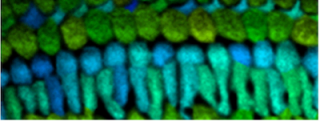
Decorative image depicting the theme of metabolism and disease
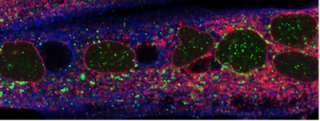
Decorative image depicting the theme of membranes, signalling and trafficking
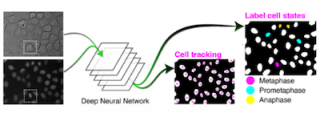
Decorative image depicting the theme of computational biology and AI
Specific applicant information
The programme is seeking applications from students who are keen to further their skills, or gain new skills, in any of the topics covered above. Interested students can contact the stream tutors (Dr Graeme King and Prof Frances Brodsky) or the overall Biosciences MRes programme lead (Dr David Murrell).
Taught modules
Taught modules cover laboratory research skills including literature analysis, oral presentation, and proposal writing. In addition, the student will choose a subject-specific taught module related to their research project after discussion with the project supervisor and stream tutor. Possible options include the following:
• Mechanisms of Molecular Machines: BIOC0014
• Molecular Mechanisms of the Cell in Human Disease & Biotechnology: BIOC0015
You can view further information about available modules in the Module Catalogue.
 Close
Close


